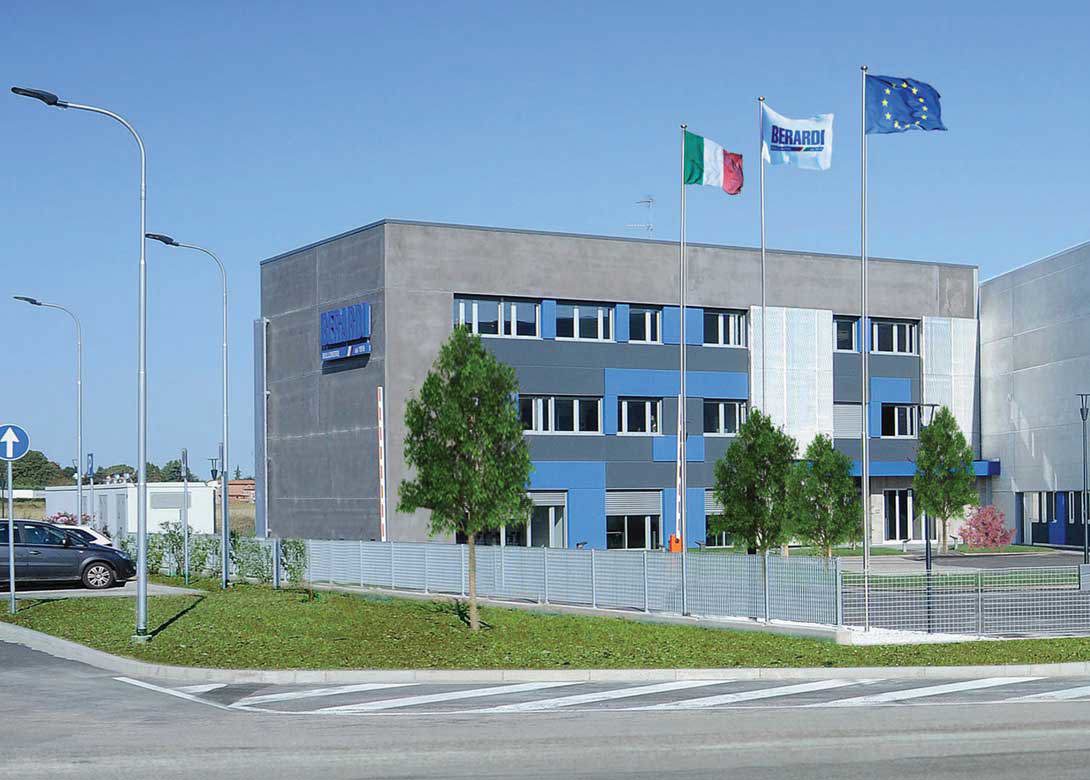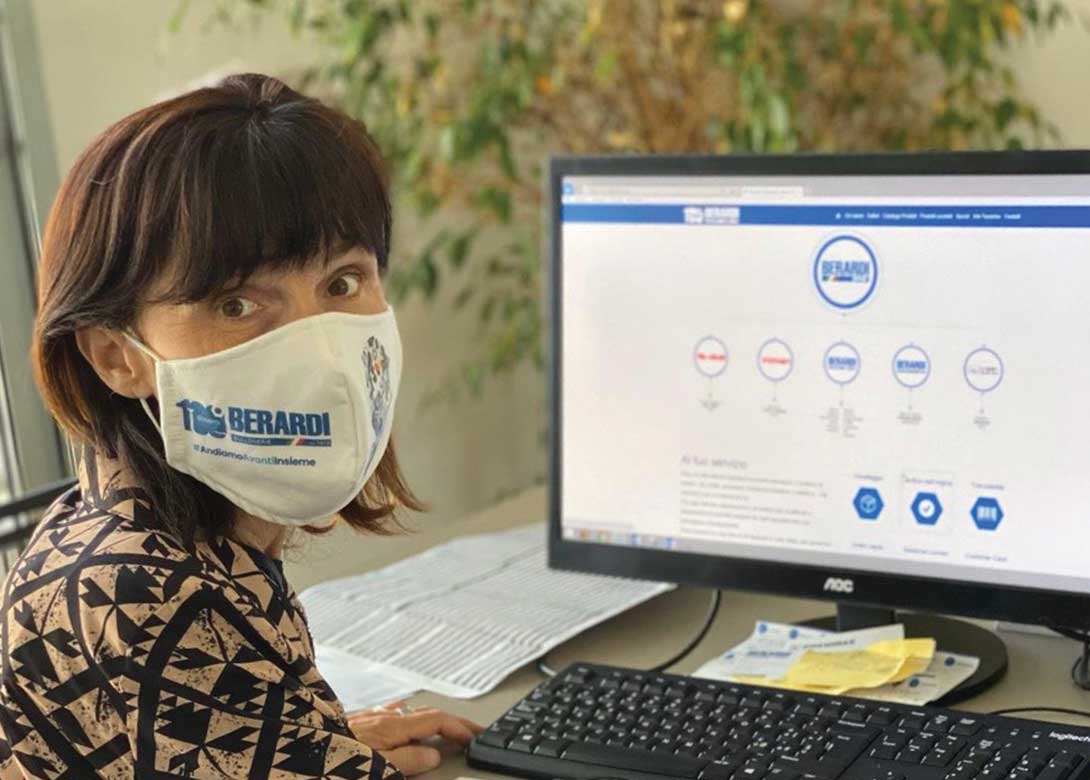

Berardi Bullonerie Srl has been at the forefront of fastening distribution within Italy for more than a century. It continues to achieve success thanks to its expanding product range and focus on the technological development of its supply chain.
A key factor in Berardi’s growth is its commitment to reinvesting its revenue into research and development and building a formidable team – with each individual bringing in their added value. “The added value we can offer customers is thanks to the extensive experience we have within lean logistic services, which can be personalised and tailor-made to each single client’s needs and characteristics,” explains Francesca Berardi, export manager at Berardi (pictured right). “These technologies make us an ideal partner/supplier even in the most complex situations.”
Berardi is able to provide a wide variety of support and services to customers, including technical support in designing custom-made parts. Alongside this the company can also provide an extensive assortment of products, which goes beyond fasteners to include many other types of industrial components. These products are supported by a quality assurance, with specialised staff and cutting-edge technology, to guarantee what Berardi delivers always meets the client’s expectations.
“We are part of a very dynamic and flexible economy; thus, we have adapted our distribution methods to the needs of ever more demanding clients,” points out Francesca. “This has led us to expand our product range, with many product categories, under the Extracomponents project – enabling us to offer a better and more complete service.”
Berardi has always been focused on innovation and whilst the Covid-19 pandemic has forced it to make sudden changes, involving its people and working processes, the company believes innovation can still play an important role out of the pandemic. “We have always seen innovation as a goal, but this pandemic forced us to make sudden changes that involved our people and working processes. We firstly focused all our efforts to protect the health and wellbeing of our employees and business partners, to avoid service breakdowns and to satisfy our clients’ demands, as well as secure regular supplies from our sources – with new logistics tools specially designed for this.”
An example of Berardi quickly adapting to the situation was the introduction of telework – which was a new tool for the company. “These changes are showing potential advantages for our organisation, as we learn to use remote working tools, such as web platforms and applications, virtual training, etc. This will help us communicate with clients effectively also after the crisis has ended,” adds Francesca.
With regards to working processes, Berardi has developed digital tools to support its sales team. “Today, digital tools are an important factor, facilitating sales processes and knowledge exchange, which is essential for a more efficient working model,” mentions Francesca. “We are developing a new management culture within our divisions, based on collaboration, knowledge sharing, individual responsibility, and skill acquisition, to build solid foundations for our development.”
A key element in this picture is artificial intelligence, in which Berardi has been investing for years – pairing it with more traditional technologies and skills. “We see AI as a very interesting topic and believe it could prove particularly useful when it comes to stock planning and supply flow management,” explains Francesca. “Digital technology will be crucial to carry us into a new era after the global pandemic. A new era that will be probably very different, perhaps for the better.”
Francesca continues: “Whilst technology will create opportunities for development, it will not be able to replace the human aspect of business. No virtual company visit, social media interaction, or technological innovation of industrial processes, can replace the empathy expressed with a handshake and a face-to-face meeting.”
The digital connection along the supply chain will also become a key focus for businesses in the future. “The value chain that is created between manufacturer, distributor, and final user, should be seen as a synergy that we should value as much as possible, especially with the uncertainty that characterises this time and future perspectives,” states Francesca. “Planning and forecasts are by now outdated tools that we cannot use anymore. The supply chain is managed efficiently when all actors communicate constantly, to distribute costs and benefits equally between them. In this respect, Business Intelligence and ERP are of utter importance. These tools have to allow for quick and detailed analyses that are easy to interpret and use. All of the above combined can allow us to maintain high-levels of service and reliability, even in the most uncertain times like these.”
Francesca concludes: “Due to the Covid-19 pandemic, we have suffered from an unexpected situation, which is not going to end after the diffusion of the virus. We need to continue to focus on work safety and new digital technology, but we can only develop these areas if we have the right skills within the business. That is why we will look to invest in training our employees, so we are ready for the inevitable technological developments. It’s down to us entrepreneurs to turn these difficult times into a historic moment.”


Will joined Fastener + Fixing Magazine in 2007 and over the last 15 years has experienced every facet of the fastener sector - interviewing key figures within the industry and visiting leading companies and exhibitions around the globe.
Will manages the content strategy across all platforms and is the guardian for the high editorial standards that the Magazine is renowned.
Don't have an account? Sign Up
Signing up to Fastener + Fixing Magazine enables you to manage your account details.